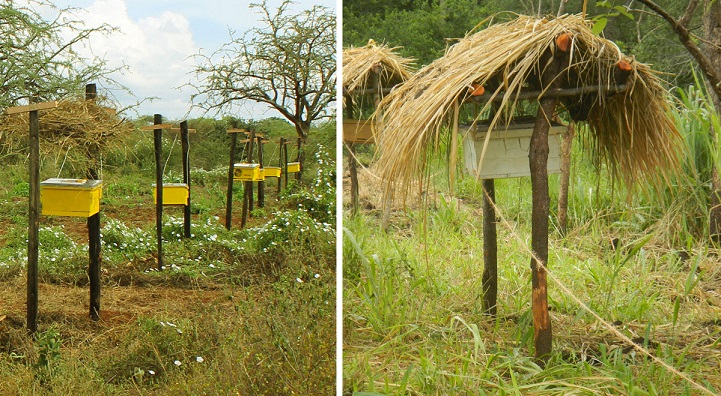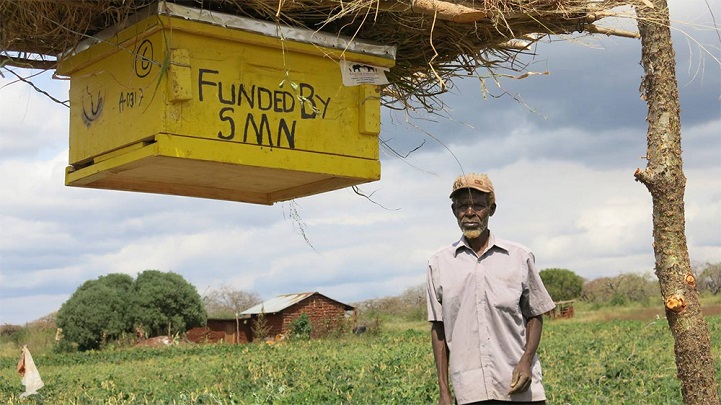Sometimes the most brilliant solutions are the most simple. This is certainly the case for the organization Bees & Elephants, which managed to find a natural solution that reconciles the conflicts that occur between elephants and humans, in the form of beehive fences. The structures consist of strings of wire with beehives spaced out, 10 meters apart from one another. When an approaching elephant hits the wiring, it disturbs the bees, causing them to emerge from their hive and scare off the powerful beast. Zoologist Lucy King is the brain behind this innovative project that successfully deters crop-raiding elephants and protects rural farmers in Africa, since its initial test run in 2009.
Though the image of a mighty elephant running away from a tiny bee is comical, elephants are naturally terrified of the little creatures. Bee stings cause excruciating pain to the elephant's sensitive trunk, and researchers have noted that entire herds of elephants will avoid areas where the buzzing of bees can be heard. King was the first to think of harnessing elephants' natural aversion to bees, with the intent to “reduce elephant crop-raiding and tree destruction and enhance local income through the sale of honey.” This ingenious and natural method takes a significant step forward towards sustainable human-elephant coexistence.
Currently, there are beehive fences located in Kenya, Botswana, Mozambique, Tanzania, Uganda and Sri Lanka. The organization works in affiliation with the Save the Elephants foundation, and is currently seeking funding to continue expanding this elegant feat of interspecies landscape engineering that is creating a safer future for both elephants and the people that live amongst them.





























































































